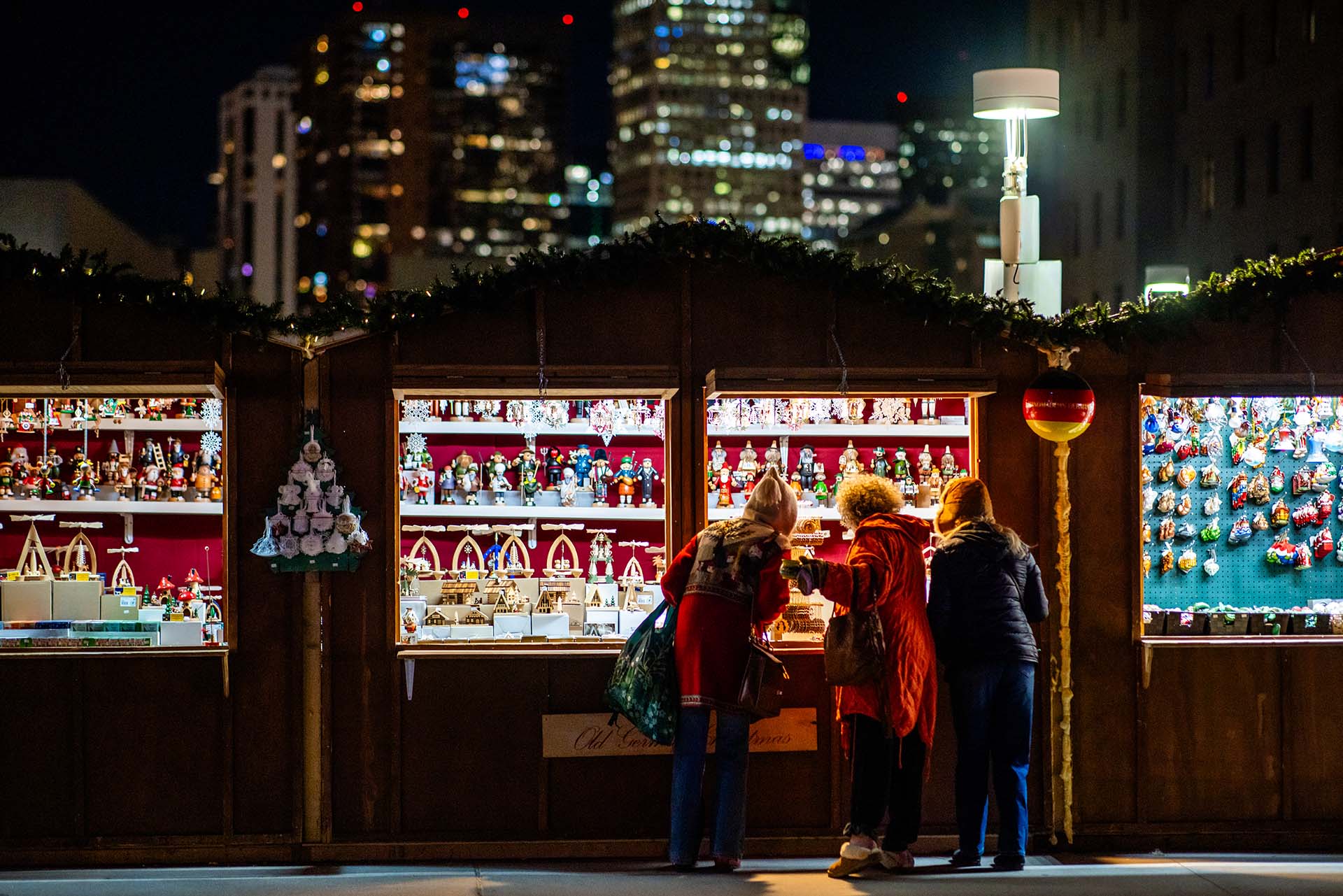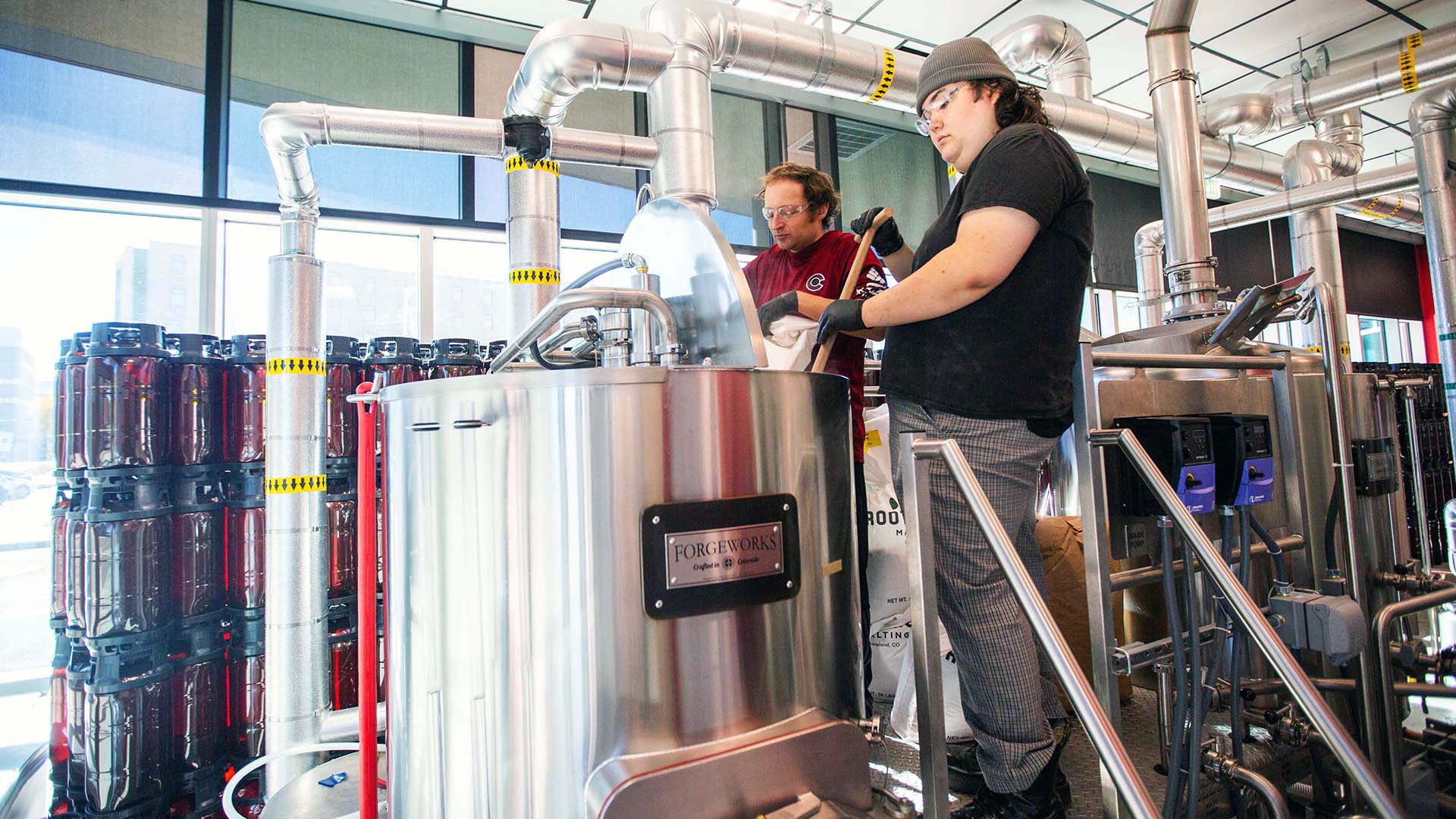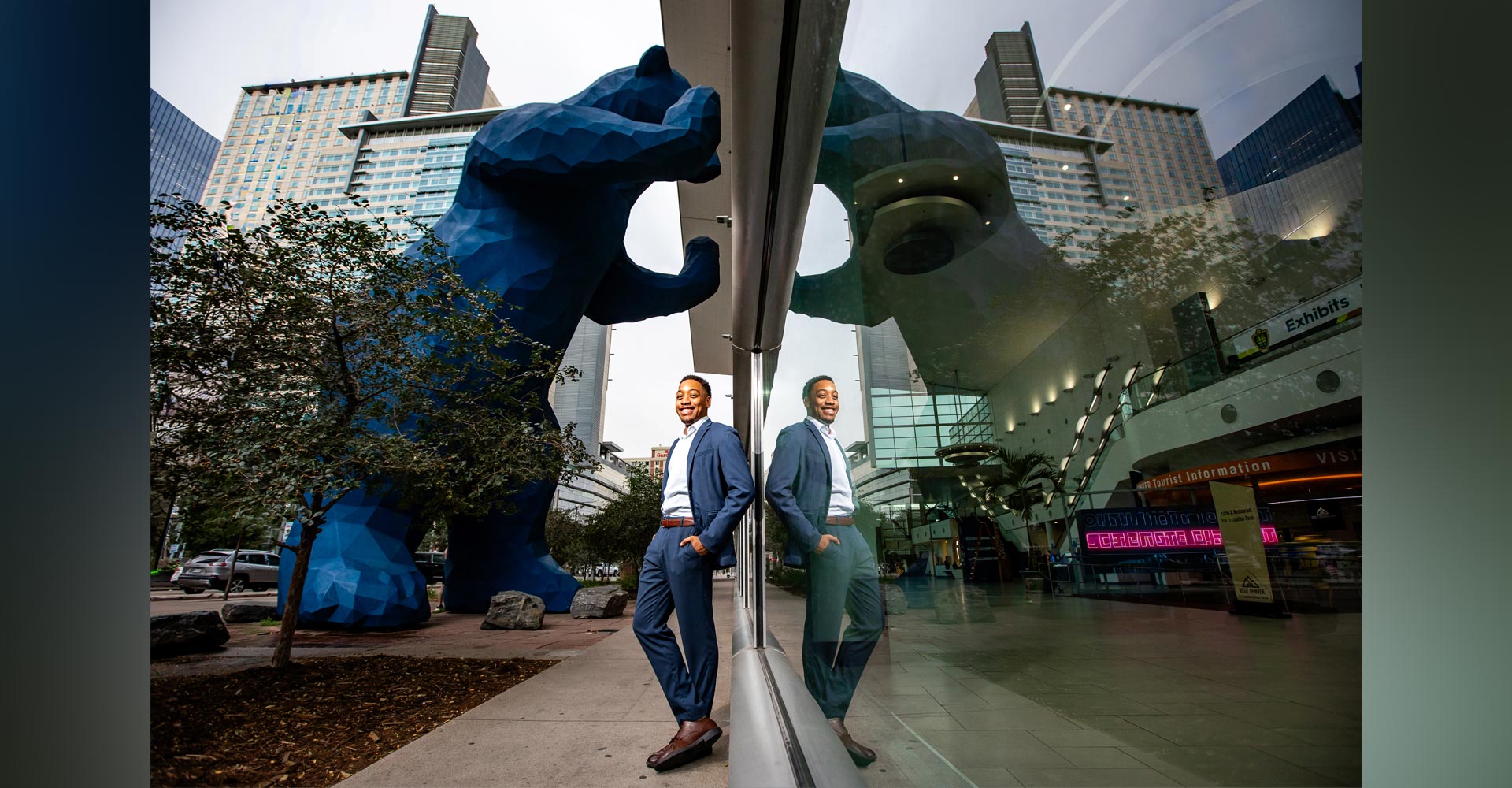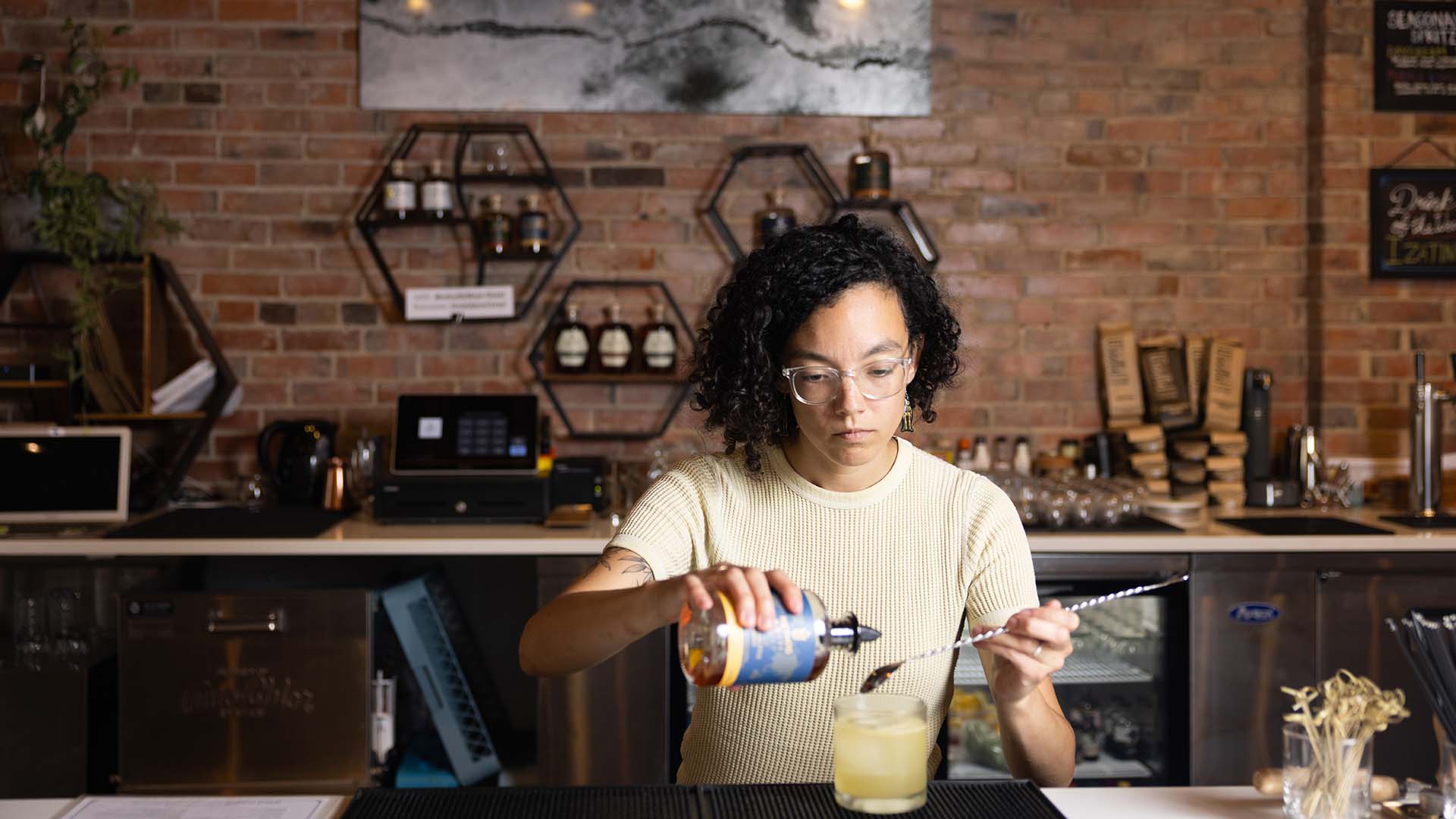Restaurants respond to pandemic’s deep freeze
As Colorado eateries brace for an uncertain pandemic winter, three industry leaders share their stories of staying afloat from the front lines and the back of the house.
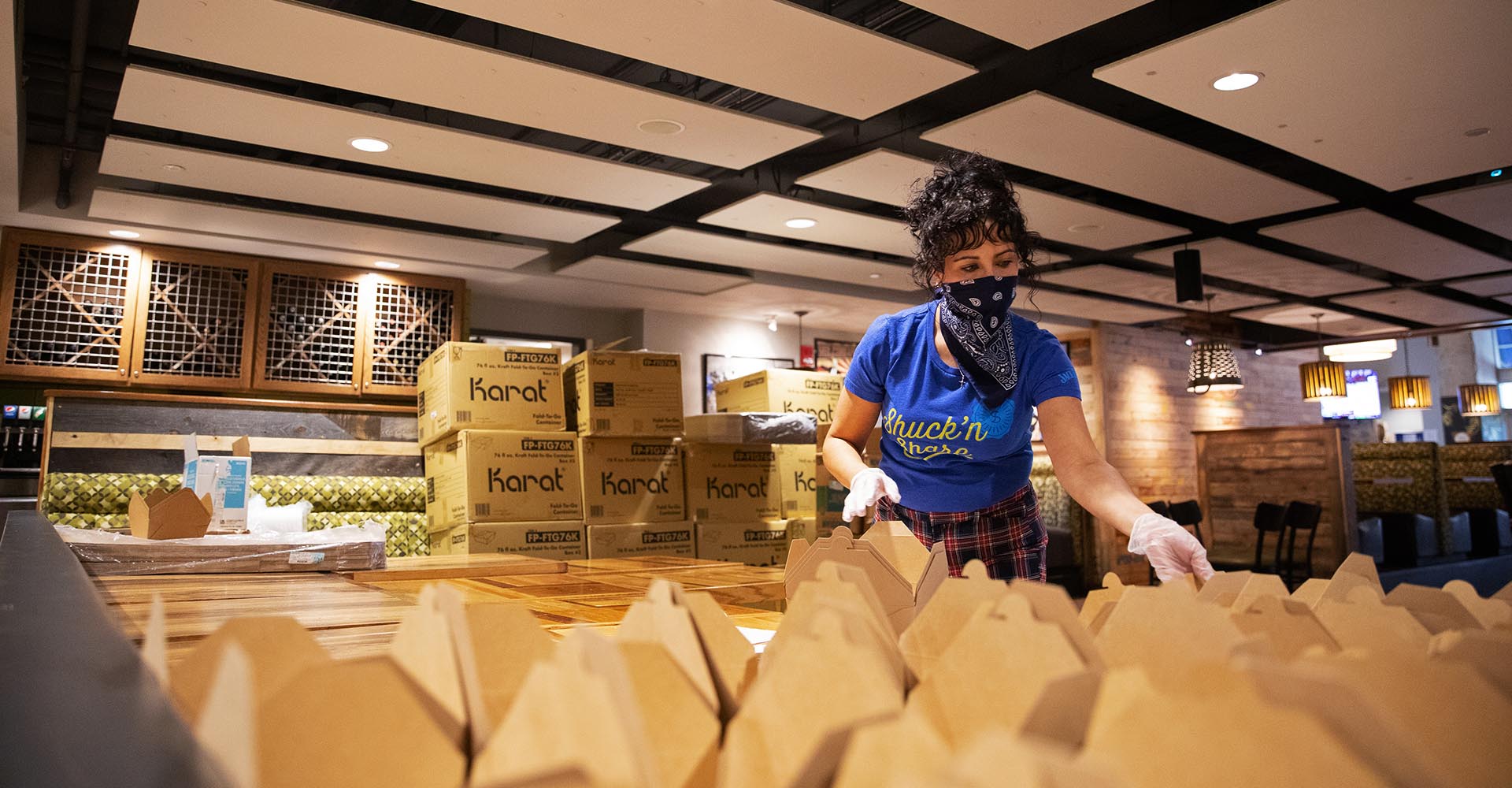
In one of the hardest-hit industries, a critical COVID-19 survival tactic is connecting with patrons wherever they may be.
Sabrina Bandy (pictured above) had just received a promotion to event coordinator for Concept Restaurants, the group founded by luminary restauranteur Frank Day, when the pandemic shut everything down. Suddenly faced with “hundreds of thousands in losses seemingly overnight,” Bandy credited her individualized degree program in sustainable food-and-beverage operations for giving her the necessary fluidity and depth.
“That was a super-beneficial foundation to have for a time like this,” the 2015 Metropolitan State University of Denver graduate said. “People in the restaurant industry are asking, ‘How can we make whatever money we can right now?’”
It’s not exactly small potatoes for an industry that in 2018 employed approximately 10% of the state workforce and generated nearly $14 billion in sales. Last week, Gov. Jared Polis announced an executive order temporarily suspending a 2.9% sales tax for restaurants, bars and food trucks – a move that could benefit some of the hospitality industry’s businesses hit hardest by tightened pandemic operating restrictions.
“We all want to keep these businesses open as a vital part of our lives and culture, which is why I’m proud to be working with a group of bipartisan legislators to provide much-needed tax relief,” Polis said in a statement.
Federal relief in the form of the CARES Act and the Small Business Administration’s Paycheck Protection Program and Economic Injury Disaster Loan programs no doubt helped keep the lights on when the pandemic first hit. But as we head into the winter without subsequent aid solidified, restaurant workers are forced once again to rely on their secret ingredient: ingenuity.
For Bandy, it’s meant a crash-course standing up a catering-based model for the previously convention-dependent Stout Street Social. She and team have launched “ghost kitchens” to provide room service and happy-hour cocktails to nearby hotels that have scaled back kitchen staff. Along with elevating the presence of Stout Street Social, Humboldt Kitchen + Bar and Su Taco on the now-essential online delivery platforms, the restaurants are working with online lunch service Fooda to provide pop-up and grab-and-go offerings to locations such as the Jefferson County Courthouse and area hospitals.
“The top thing is plugging in to where the direct needs are right now,” Bandy said. “There are some days we might not see a single person on-site (in the restaurant), but I might be able to go somewhere people are and make a few dollars – anywhere I can find to sell our food is where I’m going.”

Waiting on relief efforts
JP Taylor Jr., proprietor and beverage director of Uptown-based Beast and Bottle and sister restaurant Coperta, successfully applied for and received support from the SBA’s Paycheck Protection Program and Economic Injury Disaster Loan programs. That helped hire employees back and phase in summer’s limited reopenings, which helped stem the year-over-year revenue dip from more than 75% to closer to 40%.
“We’ve built 12 greenhouses to try to pursue outdoor dining, but due to local ordinances around alcohol sales and increasingly cold weather it really wasn’t feasible for us to try to deliver the high-quality dining experience our guests expect,” he said.
As winter approaches and things have scaled back to takeout-only, however, Taylor is pinning his hopes on funding relief efforts, such as the federal Restaurants Act proposed to provide $120 billion in support. And though the Colorado state legislature’s special session is anticipated to provide upward of $55 million in direct relief to small businesses affected by the restrictions, restaurants can apply alongside other seekers.
“We’re not looking for money forever, just to help us get through the next six to eight months until we have reliable crowds again without restrictions,” said the 2011 MSU Denver hospitality alum. “That’s how this works – you need to rely on crowded service when you’re already operating on super-thin margins.
“I hope legislators look at the 11 million restaurant workers at risk (in the U.S.) as important to the economy as any other industry.”

Independent challenges
Part of the challenge that relief efforts face is the sheer scale required to help independent restaurants survive, said Chef Jackson Lamb, hospitality professor at MSU Denver.
“The big chains are the ones positioned well,” he said. “Look at a company like Domino’s (Pizza) – they’ve already had a delivery-based business model and are booming right now.”
As general manager for Colorado Springs-based Rock Bottom Brewery, Alicia Joyner has seen the bottom-line impact firsthand. In addition to day-by-day labor cost fluctuation, the 2006 MSU Denver hospitality grad said the cost of gloves, hand sanitizer and toilet paper tripled due to supply-chain disruptions.
Joyner credits adaptability and the culture of community-based leadership fostered in other Frank Day properties for helping Rock Bottom survive.
“Restaurant and hospitality folks are resilient – we can weather a lot of storms,” she said. “Everyone loves food and needs food. And though we might be suffering right now, I truly feel we’ll rise up.
“I don’t know what tomorrow brings, but today I’m going to focus on working as hard as I can.”

